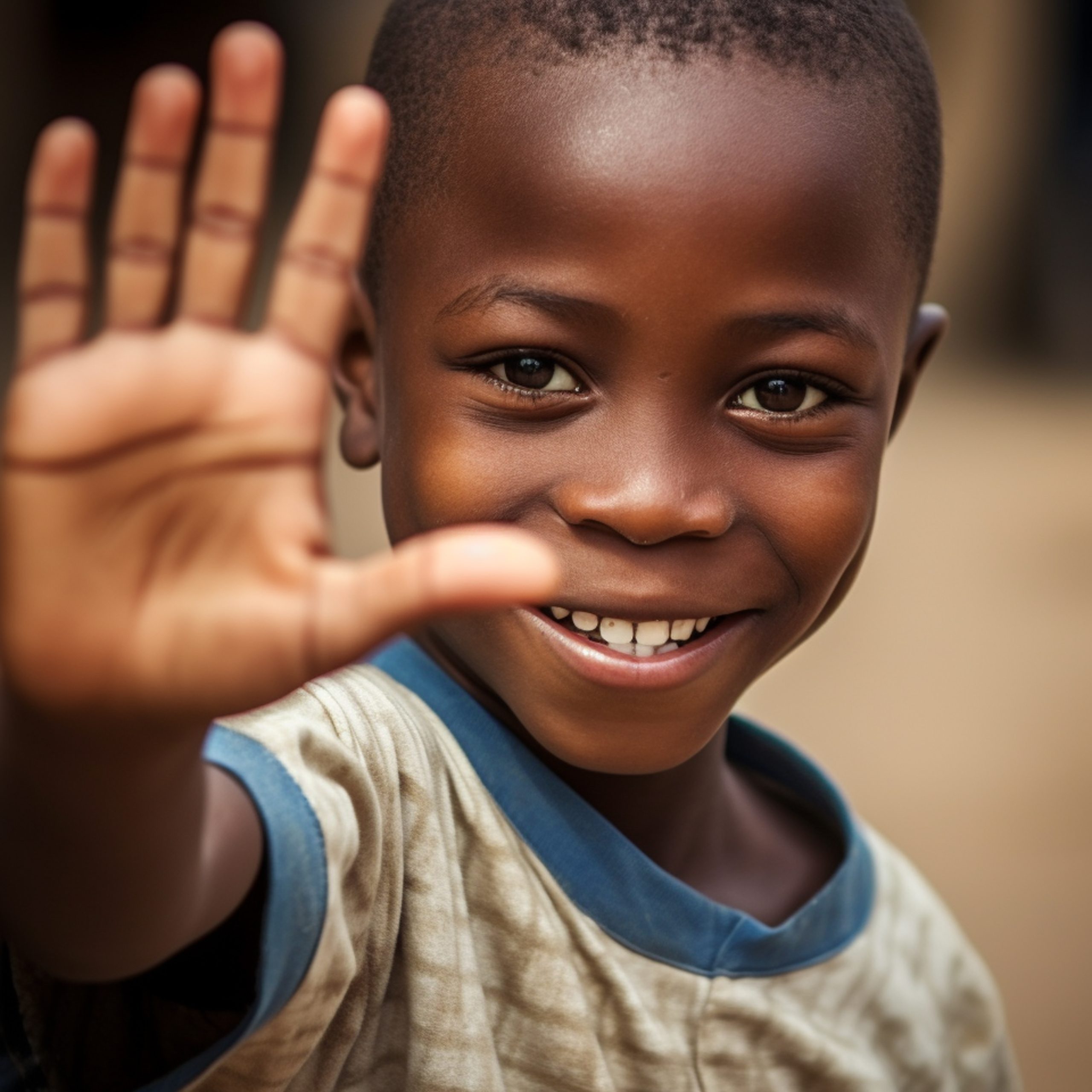Precarity and Trivialization of Mental Health in the DRC : An Overlooked Emergency
The Democratic Republic of Congo (DRC) faces numerous socio-economic challenges, among which precarity and the trivialization of mental health are significant issues. The exact causes of mental disorders remain unknown, but they are often the result of a mix of genetic, biological, psychological, and social factors. Life trauma experiences, excessive stress, a history of abuse especially in childhood, traumatic brain injuries, feelings of loneliness or isolation, drug abuse and severe medical conditions can also contribute to the development of these disorders.
Indeed, it is estimated that one in five people will suffer from a mental illness in their lifetime. In the case of the DRC, these difficulties are the result of a combination of complex factors, such as poverty, enduring armed conflicts for over two decades, political instability, and limited access to adequate mental health care. Unfortunately, in this difficult context, mental health is often relegated to the background, leading to trivialization of psychological and emotional issues that result in devastating consequences.
In the DRC, more than 20 million people, which is approximately a quarter of the population, are affected by mental disorders, as presented on World Mental Health Day by the Ministry of Public Health. Among the most common disorders, we find depression and anxiety disorders such as generalized anxiety, panic disorders, phobias, obsessive-compulsive disorders, and post-traumatic stress. Each of these mental disorders has its own characteristics and symptoms, requiring a specific approach in terms of diagnosis and treatment.
Given these alarming figures that highlight the importance of mental health and underscore the need for increased awareness and adequate resources to support those who need it, what are the real factors that constitute barriers to better progress?

Enormous Stigmatization “The Illness of Westerners – the Illness of Whites”
Like the rest of Africa in general, the Congolese people perceive mental health as a disease associated with white people, called “a weak people without any resistance to the various vicissitudes of life, those who let go, those who give up at the slightest constraint, people who would not have survived more than 400 years of slavery, etc.”, which aligns with the prejudice “Blacks are built differently”. As Blacks, we are raised with the idea that one should never show emotions or accept being vulnerable, but what is the reality?
A population rooted in cultural beliefs and traditional practices, for better or worse, has a considerable influence on the perception and management of mental health issues among Congolese. In some communities, mental disorders are considered a manifestation of spiritual possession or witchcraft, which confirms the stigmatization and social exclusion of people with mental disorders.
Mental health problems are often misunderstood and are also considered personal weaknesses rather than legitimate medical conditions. This erroneous apprehension leads to stigmatization and discrimination against those who show any sign of weakness or vulnerability or signs of weariness or strong emotions.
These stereotypes associated with mental health leads to destructive silence and increased stigmatization resulting in a deterioration of mental health, social isolation, and limited access to support services and resources. Social pressure and cultural expectations deter individuals from seeking help for their mental health issues and they exist in perpetual dark mental zones. These misconceptions and distrust towards these individuals hinder their integration into society and access to appropriate mental health care. This leads to harmful consequences affecting their daily lives, thus limiting their opportunities for education, employment, and social participation and integration. It is a proven fact that social and environmental factors such as stress, poverty, discrimination, political conflict, economic problems, and social inequalities can all contribute to and can influence the prevalence of mental disorders in any community, regardless of its ethnic composition, which strongly includes ours.
High Prevalence of Trauma Related to Armed Conflict, Forced Migration, and Violence
Our people have lived through many decades of armed conflict, forced migration, and violence, which has deeply affected the mental health of individuals, internally displaced people (IDP) and refugees, thus contributing to a high prevalence of mental disorders in the country. Refugees and IDPs are particularly vulnerable to mental health problems due to the trauma they have experienced, the loss of their reference points, and the lack of adequate support.
Furthermore, poverty, economic instability, and social inequalities have a significant impact on the mental health of the population. Precarious living conditions, lack of access to basic needs such as potable water, adequate nutrition, and quality health care contribute to the increase in mental health problems. Social and economic inequalities also accentuate disparities in access to mental health services, thus creating a vicious circle of deterioration of mental health.
Access to mental health services remains extremely limited for the population. To date, there is only one commonly recognized health center called the mental health center Téléma located in Kintambo, Kinshasa, treating more than 40,000 people per year. Despite the efforts provided, this is still insufficient given the numbers listed and the Congolese population alone, as a shortage of trained and qualified professionals in the field of mental health is observed, making it difficult to obtain accurate diagnoses and adequate treatment for people with mental disorders. Moreover, other mental health services that can accommodate the afflicted individuals are concentrated in large cities, making access difficult for populations living in rural and remote areas, especially those who are in the forefront of conflicts.
However, understanding the mental health issues specific to the region is limited, which hinders the development of tailored strategies and interventions. Therefore, it is necessary to invest more in research to better understand the risk factors and specific needs of the population, to create and reform policies and practices in mental health in the DRC. By increasing knowledge in this field, it will be possible to implement more effective measures to improve the mental health of the Congolese population, especially those who are in extremely remote areas.
Insufficient Policies and Laws Protecting the Rights of People with Mental Disorders
Policies and laws protecting the rights of people with mental disorders are insufficient or almost non-existent. This creates a legal void and exposes people with mental disorders to violations of their fundamental rights, such as discrimination, unjustified incarceration, and deprivation of liberty.
The Network of NGOs for Action in Mental Health (ROASAM), which has the mandate to coordinate, supervise, follow up, and evaluate the health activities of NGOs and Religious Confessions of the Mental Health sub-sector, has long been undertaking various activities toward reform. Its vision is to see the DRC participate effectively in the achievement of Sustainable Development Goals (SDGs) for a “Better World” through mental health, which gives human existence its value. Following this speech, a workshop to analyze and design a specific law proposal on mental health in the Democratic Republic of Congo was organized from 6th to 11th March 2023, in the presence of civil society NGOs, the Ministry of Health, the Ministry of Social Affairs, magistrates, and other partners such as “Action Against Hunger” (ACF) and OSISA, with the goal of proposing a reform integrating mental health texts into the Health Framework Law of the Democratic Republic of Congo, which was promulgated on December 13, 2018.
A second workshop was organized, from June 20th to 21st 2023, on the state of protection of mental patients, analysis, and design of the proposal for a specific law on mental health in the Democratic Republic of Congo (DRC). But to date, this law proposal is in a preliminary working session with the team of national deputies awaiting real progress.
However, since the appointment of the new Minister of Public Health, Hygiene and Prevention, Dr. Samuel Roger Kamba Mulamba, post-election is he still the Minister? a glimmer of hope prevails as he is currently working on a strategic plan including the need to urgently establish policies and laws that guarantee the protection of the rights of people with mental disorders and also to promote their social inclusion in view of the scandalous number of affected people. The Government recognizes the need to improve the management of mental health and to make it one of the important pillars of Universal health coverage by taking it as not a privilege but a universal human right.
In view of the issues and by highlighting this often-unrecognized reality, we hope to raise awareness and encourage concrete actions to improve the mental health of Congolese people and address the precarity surrounding it, which manifests on three levels :

Deconstruct Cultural Stereotypes
It is important to recognize that each culture has its own beliefs, traditions, and practices in mental health. In the DRC, for example, there are belief systems and traditional healing practices that are often incorporated into the management of mental health in rural areas; Are they effective? Not yet, but it is crucial to respect and value these cultural approaches while ensuring that people have access to appropriate and quality mental health care.
Mental health is an important subject in all countries, including the DRC. While there are cultural differences and variations in how mental disorders are perceived and addressed, it is key not to convey stereotypes or generalizations. In the context of Western countries, it is true that mental health has gained visibility and recognition in recent decades. However, it is incorrect to describe mental health as a “Western illness” or a “white person’s illness.” Mental disorders do not have cultural or ethnic borders and can affect anyone, regardless of their background. The notion that mental health is specific to a culture or ethnic group is deeply flawed. Mental health problems know no borders and affect all populations, irrespective of their background. The factors influencing mental health are complex and multifactorial; it is inaccurate and oversimplified to reduce mental health to a matter of race or culture worldwide. Although there are variations and differences in the ways mental disorders are perceived and approached, it is important not to generalize or stigmatize a particular population.
Promote Awareness and Inclusion
Recognizing that mental health is a global concern fosters better understanding and greater compassion for those struggling with mental health issues. Encouraging diversity in narratives and experiences helps break down stereotypes and promote holistic approaches to mental well-being.
People are often not informed about the measures they can take to care for their mental health, such as practicing relaxation techniques, Yoga, regular physical exercise, and maintaining healthy social relationships. For a community like ours to develop, it is essential to understand these varied factors and types of mental disorders and to recognize their symptoms and provide proper support to those affected. Additionally, it is crucial to combat the trivialization of mental health by raising awareness among the Congolese population and promoting mental hygiene, access to quality mental health care, and inclusion across all cultures.
Emphasize the Shortage of Financial Resources to Support Mental Health Programs and Research
Families often play a crucial role in supporting people with mental disorders, but they face a lack of resources and knowledge to deal with these situations. In high-risk regions, there is a shortage of support services for families and loved ones of people with mental disorders. Therefore, it is essential to establish support services and training for families to help them better understand and manage mental health issues.
The financial resources allocated to mental health programs in the DRC are insufficient, limiting the establishment of adequate infrastructure, training, and support for people with mental disorders. The lack of investment in awareness, education, and prevention programs for mental disorders contributes to an increase in mental disorder cases and a deterioration of the population’s mental health, making mental illness the poor relation of the Congolese public health system.
This situation results from a lack of coordination and collaboration between mental health services and other sectors such as education and employment. This fragmentation of services hinders the comprehensive care of people with mental disorders. It is essential to establish links between these different sectors to ensure an integrated and holistic approach to mental health, thus allowing continuous support and optimal social reintegration.
Furthermore, in the DRC, there is a lack of adequate training for health professionals to diagnose and treat mental disorders. This limits their ability to provide quality mental health care. To improve the situation, it is critical to strengthen the training of health professionals, including doctors, nurses, and social workers, to ensure adequate mental health skills and improve the quality of care provided.



